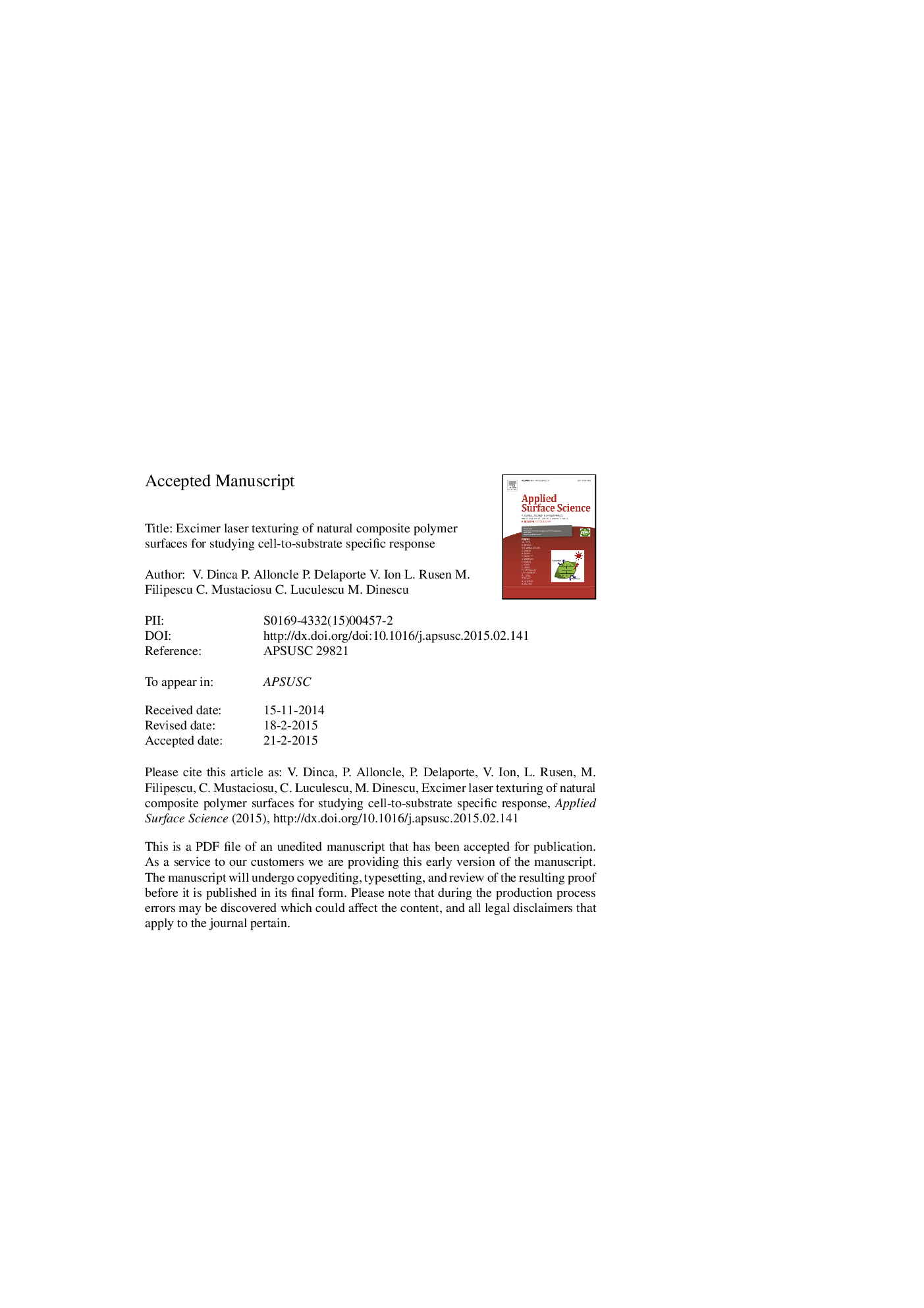| Article ID | Journal | Published Year | Pages | File Type |
|---|---|---|---|---|
| 5357009 | Applied Surface Science | 2015 | 28 Pages |
Abstract
Surface modifications of biocompatible materials are among the main factors used for enhancing and promoting specific cellular activities (e.g. spreading, adhesion, migration, and differentiation) for various types of medical applications such as implants, microfluidic devices, or tissue engineering scaffolds. In this work an excimer laser at 193Â nm was used to fabricate chitosan-collagen roughness gradients. The roughness gradients were obtained in one step by applying single laser pulses and sample tilting. Fourier transform infrared spectroscopy measurements, atomic force microscopy (AFM), scanning electron microscopy (SEM), and spectro-ellipsometry (SE) were used for sample characterization. The goal is to determine the optimal morpho-chemical characteristics of these structures for in vitro tailoring of protein adsorption and cell behavior. The response induced by the roughness gradient onto various cell lines (i.e. L 929 fibroblasts, HEP G2 hepatocytes, OLN 93 oligodendrocytes, M63 osteoblasts) and bovine serum albumin (BSA) protein absorption was investigated.
Keywords
Related Topics
Physical Sciences and Engineering
Chemistry
Physical and Theoretical Chemistry
Authors
V. Dinca, P. Alloncle, P. Delaporte, V. Ion, L. Rusen, M. Filipescu, C. Mustaciosu, C. Luculescu, M. Dinescu,
